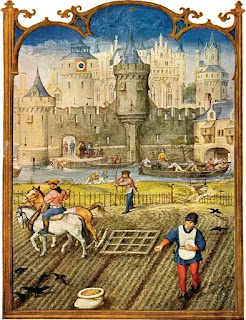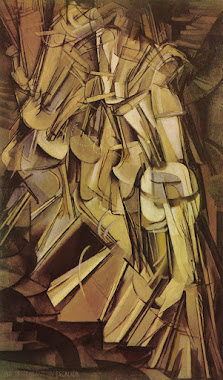The Ethics Of Liberty - The Problem Of Land Theft
The Ethics Of Liberty by Murray Rothbard
After defining criminality broadly in the previous chapter, Rothbard focuses his attention to land as property and its unique importance.
"A particularly important application of our theory of property titles is
the case of landed property. For one thing, land is a fixed quotal portion
of the earth, and therefore the ground land endures virtually permanently."
Land property is unique because the supply is so inflexible. Practically none more will be created but neither will it be destroyed. For these same reasons, George Bernard Shaw started his argumentation for socialism with the ownership of landed. His argument is not very convincing because it wasn't built upon a solid understanding of natural law and natural rights. His used a shallow historical analysis and whiny list of grievances. It is internally logical, but it should be easy to identify his assumptions as false.
Rothbard applies the same concepts of ownership, property, and labor to refute the legitimacy of feudalism. An individual makes land his property by mixing his labor with it in some way. He must transform the land. Rothbard doesn't describe how to do it, but a few examples are clearing, farming, ranching, building on it, or even putting a fence around it. Once the land is transformed in any way it is his legitimate property forever unless he transfers it to someone else.
It is important to note that no other work needs to be done by the owner. His ownership does not expire after a certain period of time. The land doesn't have to be "improved" periodically according to some schedule. States in the modern era including the US, UK, and Israel have all used an "infrequent improvement" or "adverse possession" excuse for taking land from previous owners, usually to give to those who are politically favored. Clearly states who do this are committing crimes. Undoing those crimes are very difficult due to the timeframes and lack of documentation involved but they are crimes none the less.
Would this theory allow for a property owner to create a nature preserve out of his land property? Rothbard doesn't elaborate. But I would say the act of fencing off the entire plot and putting up signs declaring it a nature preserve would be sufficient. I am not sure that Rothbard would agree with me, but there has to be a way for private citizens to preserve natural habitat for the enjoyment of themselves and others. Think of what privatizing state and national parks would look like. Something like that. Or think about land that is privately owned where visitors can pay entrance to use for hunting, safaris, camping, hiking, rafting, etc.
But transformation is the key. You can't claim ownership over land that you did not mix your labor with.
"Mr. Green legally owns a certain acreage of land, of which the northwest
portion has never been transformed from its natural state by Green or by anyone
else. Libertarian theory will morally validate his claim for the rest of the land...
But libertarian theory must invalidate his claim to ownership of the northwest
portion."
Following that, anyone who then moves to that portion of land, let's call him Mr. Brown, and transforms it with his labor is the rightful owner. Anything Mr. Green would do to keep Mr. Brown off the land except for transforming it himself would be criminal aggression. The same would be true if Mr. Green tried to forcibly move Mr. Brown off the land after he transformed it.
If the owner doesn't sell the land its ownership would go over to whomever inherits it. The land can be owned by the family perpetually if one generation continues to bequeath it to the next. This principle is similar for illegitimate claims or titles too. Those who inherit land from someone who criminally took it do not have legitimate ownership. The ancestors who last owned the land legitimately would have a rightful claim at any point in time. The just thing would be to return the land to the victimized family.
Apply this logic to the case of feudalism. At some point in history the Smith family settled a plot of land building a farm and a ranch on it. Later, the Jones family moves to a plot of land beside Smith's. Jones claims ownership of the land and by force requires Smith to pay him tribute from the produce of that land or rent to stay on it. Jones' ownership claim is criminal aggression. Suppose this situation lasts for hundreds of years. Regardless of which families take the place of Smith and Jones through time the situation remains the same. Those who work the land are the rightful owners. Those who extract tribute from the owners are criminals.
"In this case of 'feudalism' or 'landed monopoly', the feudal or monopolist
landlords have no legitimate claim to the property. The current 'tenants',
or peasants should be the absolute owner of their property, and, as in the
case of slavery, the land titles, should be transferred to the peasants, without
compensation to the monopoly landlords."
Feudalism can refer to a system where peasants are forced to stay on the land but also includes a system where people can move on and off the land, if tribute to the landlord is maintained. The peasants can be descendants of the original victims or not.
This doesn't mean that legitimate land owners can't rent out land for others' use. The land continues to be the property of Smith, but there is no crime if the Miller family now pays rent for its use. Voluntary agreements between two parties are always legitimate.
Rothbard had previously proven that the notions of ownership in slavery and socialism violate natural law and natural rights. With this section he proves that feudalism also violates natural law and natural rights.





Comments
Post a Comment